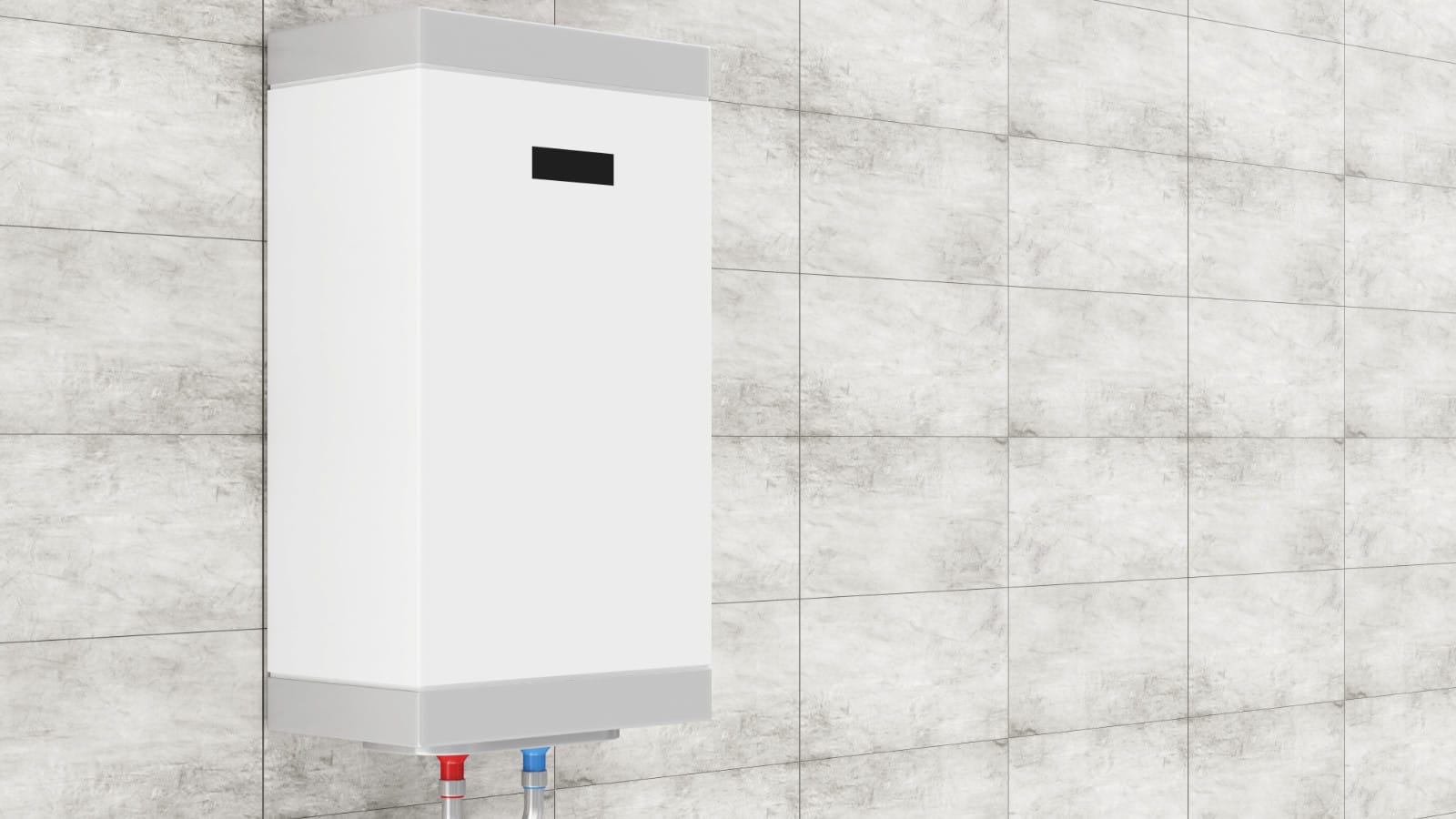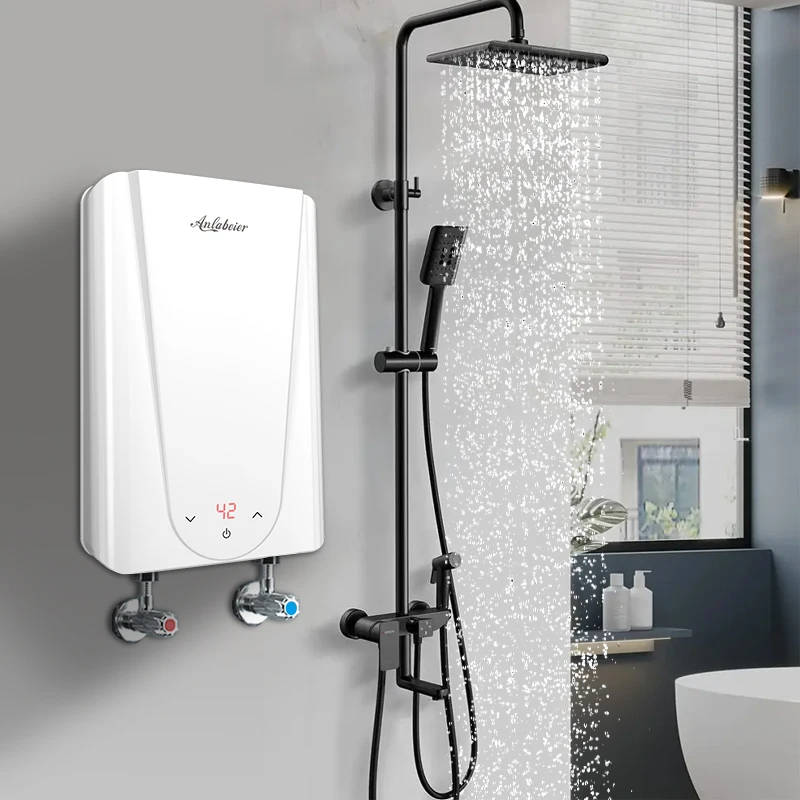Why Tankless Water Heaters Elevate Homeowners’ Benefits
Why Tankless Water Heaters Elevate Homeowners’ Benefits
Blog Article
This great article directly below pertaining to Unveiling the Hot Trend: The Benefits of Tankless Water is relatively informative. Don't miss it.

In a world where comfort and performance reign supreme, it's no surprise that homeowners are constantly in search of smarter means to handle their home's energy consumption and convenience. One innovation that has steadily obtained appeal is the tankless hot water heater. Yet just what makes these systems attract attention from the conventional tank-based models a lot of us grew up with? Let's dive in and explore the benefits of tankless water heaters, aiding you choose if it's time to make the switch in your home.
Introduction
Photo this: you enter the shower after a lengthy day, expecting a relaxing cascade of warm water, only to be greeted by icy droplets due to the fact that the last individual used everything up. Sound acquainted? Typical water heaters save a fixed quantity of hot water, suggesting you go to the grace of that container's supply. Tankless systems, on the other hand, heat water as needed. Say goodbye to running out mid-shower, no more wrestling with schedules simply to ensure hot water is readily available.
Comprehending Tankless Hot Water Heater
What Are Tankless Hot Water Heater?
Tankless water heaters, often called on-demand or instantaneous hot water heater, supply hot water only as it's required. Instead of storing gallons of pre-heated water, these systems kick into action the minute you activate the faucet. Water goes through a warm exchanger, heating up in real-time, indicating you obtain an uninterrupted flow of hot water without the need for a large container resting idly by.
Exactly how Do They Vary from Typical Systems?
Traditional heaters hold a storage tank of hot water, using power to maintain that storage tank at a consistent temperature. Tankless devices eliminate the standing supply, lowering lost power and the large impact of a huge cyndrical tube. Basically, you're upgrading from a "stockpile" attitude to a "made-to-order" technique.
Common Sorts Of Tankless Systems
Tankless water heaters generally come in 2 selections: gas and electrical. Gas models often tend to supply higher circulation rates, perfect for larger households, while electrical designs typically offer smaller sized homes and are normally much easier to set up. In addition, some systems are created for point-of-use (serving one fixture) while others can deal with the whole home's warm water requirements.
Trick Benefits of Tankless Water Heaters
1. Countless Warm Water Supply
Ever before needed to set up showers so every person gets their reasonable share of warm water? With tankless, that ends up being a thing of the past. As long as the heating unit's circulation capability isn't gone beyond, you can take back-to-back showers without turning into a popsicle.
2. Energy Performance and Expense Financial Savings
No more heating up a giant storage tank's worth of water and keeping it cozy throughout the day. Tankless heating systems reduce standby power losses, which can lower utility expenses. While the first expense could be greater, the lasting cost savings usually warrant the financial investment.
3. Space-Saving Layout
If your home is short on storage space, getting rid of the large storage tank liberates important area. Tankless devices are compact and can frequently be mounted on walls, hidden in edges, or installed in tight utility wardrobes without hogging the entire area.
4. Longer Life-span
A well-kept tankless hot water heater can outlive its tank-based cousin. Traditional storage tanks could last 10-15 years, while tankless models can keep downing along for twenty years or more, making them a solid investment with time.
5. Improved Water Quality
Storing water in a container can often result in debris accumulation or a slightly "off" preference. With tankless systems, fresh water is heated up right away, lowering the opportunities of sediment build-up and possibly providing cleaner-tasting water.
Factors to consider Prior To Switching
Though the advantages are engaging, it's a good idea to take into consideration a few variables prior to totally dedicating.
Initial Financial Investment Costs
Tankless heating systems usually come with a higher in advance price. In between the device itself and potential installation adjustments, the initial expense could provide you sticker shock. But remember to view it as a lasting investment.
Installation Requirements
Depending on your home's framework, you might need added electric ability or gas line upgrades. Guarantee you understand the setup needs and seek advice from a professional to prevent shocks.
Examining Your Home's Water Use Patterns
If your house at the same time utilizes numerous components with high warm water need, ensure the unit's circulation rate fulfills your needs. Knowing your use patterns helps you select the best size and kind of tankless heating unit.
Upkeep and Care Tips
Tankless systems are fairly reduced upkeep, but they aren't set-it-and-forget-it devices.
Routine Cleansing and Descaling
Difficult water minerals can accumulate in the heat exchanger, influencing effectiveness. Routine descaling (typically recommended each year) keeps the device running at peak performance.
Annual Professional Assessments
A yearly checkup from an expert makes certain minor problems are captured early. They'll assess the system's performance, try to find leakages, and aid maintain optimal performance.
Making Certain Proper Ventilation
For gas models, proper ventilation is necessary to safely remove exhaust gases. Ensure venting systems are clean and properly mounted to avoid any prospective safety risks.
Contrasting Different Brands and Designs
Not all tankless hot water heater are created equivalent.
Researching Trustworthy Makers
Search for trustworthy brands with a background of creating top quality units. A trusted maker frequently supplies much better customer support and longer guarantees.
Reviewing Reviews and Individual Comments
Individual evaluations and responses from next-door neighbors or friends who have gone tankless can supply useful insights. Often, real-life experiences can be extra telling than advertising brochures.
Setup: Do It Yourself or Expert?
While some house owners delight in taking on tasks themselves, tankless installation could not be the best time to burst out the toolbox.
Benefits and drawbacks of DIY Installation
A do it yourself install can save money, however it includes threats. Wrong installation can result in ineffectiveness or security worries. If you're handy and have experience, it might be possible-- but proceed with care.
When to Call an Expert Plumber
For the majority of, calling a pro ensures everything's done correctly. An expert plumbing understands neighborhood codes, sizing requirements, and airing vent specifications, decreasing the risk of mishaps.
Making best use of Effectiveness
You have actually invested in a tankless system-- currently maximize its performance.
Optimal Temperature Level Setups
Most people establish their systems in between 120-140 F. Adjusting the temperature level can improve comfort and savings. Experiment to find a sweet spot that doesn't lose power.
Coupling With Low-Flow Fixtures
Want to extend your system's capabilities? Take into consideration setting up low-flow showerheads and taps. They decrease water usage, enabling your tankless system to provide a constant stream of hot water without straining.
Ecological Influence
Tankless hot water heater align with greener living goals.
Minimized Carbon Footprint
By using less energy and only heating water as needed, tankless systems can lower your home's carbon footprint, lowering your environmental effect.
Conserving Natural Resources
Much less power usage and less thrown away hot water equate right into less natural resources being utilized, an ecological win-win.
That Profits The Majority Of from Tankless Heating systems?
The beauty of tankless heating systems is that they can fit a range of homes.
Large Households vs. Single Occupants
Huge family members might enjoy the countless warm water supply, while solitary passengers appreciate the power financial savings from not warming an entire tank for just one person's early morning shower.
Homeowners with Restricted Room
If your home is short on square video footage, losing the bulky storage tank maximizes room for various other fundamentals-- or perhaps just extra breathing space.
Eco-Conscious Customers
Going tankless aligns with environmentally friendly worths, ensuring you're not losing power or sources.
Future Patterns in Tankless Water Heaters
The globe of home appliances is ever-evolving, and tankless water heaters are no exception.
Smart Home Integration
Visualize changing your hot water heater's temperature by means of an application or getting upkeep notifies on your phone. As wise home technology developments, we'll see even more connection and comfort.
Advancements in Innovation
R&D is frequently improving warmth exchangers, making systems extra effective and durable. Future models might be even quieter, much more small, and far better fit for varying environments.
Conclusion
Picking a tankless water heater is greater than just upgrading your home's hot water system; it's buying long-term comfort, power performance, and a greener lifestyle. By considering your household's water usage, bearing in mind setup needs, and committing to routine upkeep, you can appreciate a steady stream of hot water without the luggage of a cumbersome storage tank. As technology develops, you can eagerly anticipate also smarter, a lot more effective tankless options that not only make your life simpler but also profit the planet.
Pros and Cons of Tankless Water Heaters
Tankless Water Heater Pros
Saves Energy: Simply put, you re spending less energy to create hot water, so your total carbon footprint goes down, not to mention your bills. Lasts Longer Than Storage Tanks: Storage tank units need to be replaced every 15 years or so. But tankless units? They can last for 30 years before they give out on you. Constant Hot Water: Need to take a shower and don t want the water running cold? Awesome it won t. The water will stay hot the entire time because it creates hot water on demand. Saves You Money: Less water usage equals less money. Beyond that, you re not paying to keep water hot 24/7. Those savings add up quickly. Better for the Environment: Less water waste is better for everyone. It saves you money, but it s also environmentally conscious at the same time. Tankless Water Heater Cons
It Can Take a Minute: Depending on your specific unit and its placement, it can take anywhere from 10 seconds to 2 minutes to fully heat up. Because there s no storage tank, it heats water as you need it. Upfront Purchase Price: While we talked about their longevity, there s sticker shock when you look at brand-new tankless units to install. It pays for itself, but it s still a big chunk of change at first. Has its Limits: If you run multiple appliances at once, such as the dishwasher, washing machine, and maybe you take a shower at the same time, there might not be enough hot water. https://www.airsouthnow.com/blog/water-heater-service/pros-and-cons-of-tankless-water-heaters/

I ran across that blog posting on Six Benefits of a Tankless Hot Water Heater while browsing the web. Be sure to set aside a second to share this article if you appreciated it. Thank you so much for your time spent reading it.
Click Here Report this page